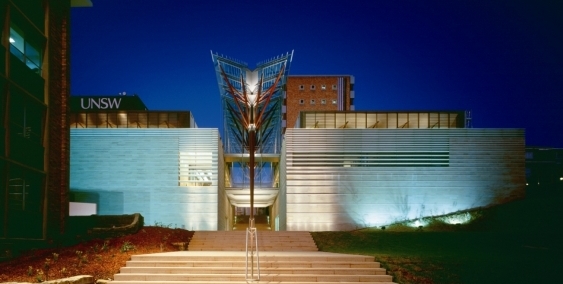
Faculty of Science researchers have performed strongly to help UNSW secure the highest level of funding in NSW in the latest round of federal government’s industry-linked research projects scheme.
UNSW researchers have been awarded $7.6 million for 25 industry-linked research projects and $3.8 million for a centre to transform Australia’s high-performance manufacturing industry.
Overall, UNSW was ranked third nationally in the Australian Research Council (ARC) Linkage Projects scheme.The 25 grants cover research projects in fields ranging from cancer care and refugee health, to water treatment and automated vehicles.
Under the Linkage scheme, industry partners must make a significant cash and/or in-kind contribution to their projects. The collaboration is essential to transforming industries, building communities and strengthening the Australian economy.
Acting Deputy Vice-Chancellor (Research), Professor Brian Boyle, congratulated the grant recipients: “This is another strong result for UNSW. The Linkage program success reflects our leading engagement and collaboration with industry.
"The funded projects, along with the support for a new Industry Transformation Program led by UNSW Engineering, highlight the talent of our researchers to find solutions to real-word problems. This recognition for UNSW’s innovators and collaborators will help further accelerate knowledge transfer.”
The $3.8 million awarded under the Industrial Transformation Research Program will establish a new ARC Training Centre for Automated Manufacture of Advanced Composites with the aim of developing a new generation of innovative researchers who can transform Australia’s high-performance carbon composites manufacturing industry.
UNSW Science projects funded include:
Dr Angela Nickerson‘s team was awarded $568,000 to conduct a longitudinal investigation of the psychosocial adaptation of refugees.
Associate Professor Mike Letnic’s team was awarded $380,000 to improve the reintroduction success of burrowing bettongs outside sanctuaries by exposing them to predators before release and by harnessing the suppressive effects of dingoes on introduced predators such as cats and foxes.
Associate Professor Pall Thordarson’s team was awarded $330,378 to make luminescent solar concentrators that can harness solar energy from surfaces not suited for conventional solar cells, such as car windows.
Dr Richard Edward’s team was awarded $325,000 to study how complex metabolic pathways originate and evolve, using yeast.
Professor Peter Steinberg’s team was awarded $280,687 to restore a key habitat forming-seaweed and its ecosystem, by integrating experimental ecology, population genetics, eco-engineering and restoration ecology.
Dr Kristy Matire’s team was awarded $200,500 to reduce the presentation of inaccurate and unscientific forensic science evidence to fact-finders by developing evidence-based recommendations for optimising accurate and effective communication between scientists and courts.
A full list of grant winners can be found on the ARC website.
UNSW Science media contact: Deborah Smith: 9385 7307, 0478 492 060, deborah.smith@unsw.edu.au
.
